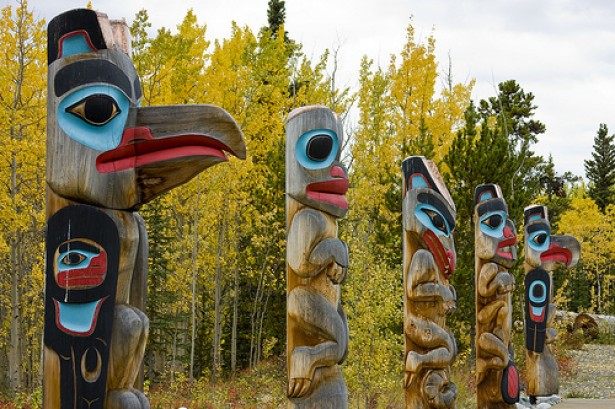
The voices of elders are, for lack of a better word, impactful. I think the most stunning and enthralling trait that Salina Everson, David Katzeek, and Linda Belarde brought to our 680 classroom was the weight and impact of words. Their words send waves of meaning and emotion – the depth of their voices speak so much to their experiences.
Each talked about the value of the Tlingit language to their identity and their upbringing – each had a different experience, and each shared beautiful stories of how that changed their lives. Their challenges of having or discovering their cultural identity – something challenged by the schooling they received – is what made those words strong.
I feel an important part of this experience is how tender humans are when it comes to culture and identity. The words we say and write make
an impact which can shape lives. We often identify a person who said something to us that made us who we are. We regularly quote a few words, an aphorism, or a sentence to embody elaborate ideas.
